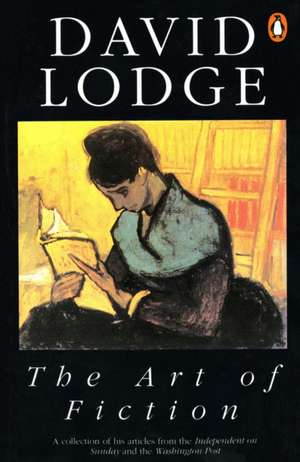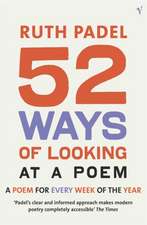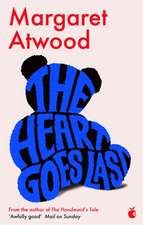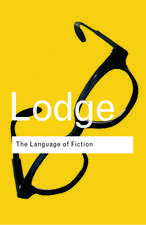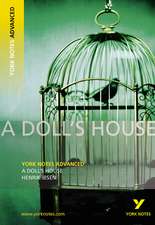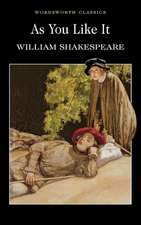The Art of Fiction: Illustrated from Classic and Modern Texts
Autor David Lodgeen Limba Engleză Paperback – 30 iun 1994 – vârsta de la 18 ani
The articles with which David Lodge entertained and enlightened readers of the Independent on Sunday and The Washington Post are now revised, expanded and collected together in book form.The art of fiction is considered under a wide range of headings, such as the Intrusive Author, Suspense, the Epistolary Novel, Time-shift, Magical Realism and Symbolism, and each topic is illustrated by a passage or two taken from classic or modern fiction. Drawing on writers as diverse as Henry James and Martin Amis, Jane Austen and Fay Weldon and Henry Fielding and James Joyce, David Lodge makes accessible to the general reader the richness and variety of British and American fiction. Technical terms, such as Interior Monologue, Metafiction, Intertextuality and the Unreliable Narrator, are lucidly explained and their application demonstrated.
Bringing to criticism the verve and humour of his own novels, David Lodge has provided essential reading for students of literature, aspirant writers, and anyone who wishes to understand how literature works.
Bringing to criticism the verve and humour of his own novels, David Lodge has provided essential reading for students of literature, aspirant writers, and anyone who wishes to understand how literature works.
Preț: 84.57 lei
Nou
Puncte Express: 127
Preț estimativ în valută:
16.18€ • 17.63$ • 13.64£
16.18€ • 17.63$ • 13.64£
Carte indisponibilă temporar
Doresc să fiu notificat când acest titlu va fi disponibil:
Se trimite...
Preluare comenzi: 021 569.72.76
Specificații
ISBN-13: 9780140174922
ISBN-10: 0140174923
Pagini: 256
Dimensiuni: 130 x 196 x 16 mm
Greutate: 0.19 kg
Editura: Penguin Books
Locul publicării:United Kingdom
ISBN-10: 0140174923
Pagini: 256
Dimensiuni: 130 x 196 x 16 mm
Greutate: 0.19 kg
Editura: Penguin Books
Locul publicării:United Kingdom
Cuprins
Preface
1. Beginning (Jane Austen, Ford Madox Ford)
2. The Intrusive Author (George Eliot, E. M. Forster)
3. Suspense (Thomas Hardy)
4. Teenage Skaz (J.D. Salinger)
5. The Epistolary Novel (Michael Frayn)
6. Point of View (Henry James)
7. Mystery (Rudyard Kipling)
8. Names (David Lodge, Paul Auster)
9. The Stream of Consciousness (Virginia Woolf)
10. Interior Monologue (James Joyce)
11. Defamiliarization (Charlotte Brontë
12. The Sense of Place (Martin Amis)
13. Lists (F. Scott Fitzgerald)
14. Introducing a Character (Christopher Isherwood)
15. Surprise (William Makepeace Thackeray)
16. Time-Shift (Muriel Spark)
17. The Reader in the Text (Laurence Sterne)
18. Weather (Jane Austen, Charles Dickens)
19. Repetition (Ernest Hemingway)
20. Fancy Prose (Vladimir Nabokov)
21. Intertextuality (Joseph Conrad)
22. The Experimental Novel (Henry Green)
23. The Comic Novel (Kingsley Amis)
24. Magic Realism (Milan Kundera)
25. Staying on the Surface (Malcolm Bradbury)
26. Showing and Telling (Henry Fielding)
27. Telling in Different Voices (Fay Weldon)
28. A Sense of the Past (John Fowles)
29. Imagining the Future (George Orwell)
30. Symbolism (D. H. Lawrence)
31. Allegory (Samuel Butler)
32. Epiphany (John Updike)
33. Coincidence (Henry James)
34. The Unreliable Narrator (Kazuo Ishiguro)
35. The Exotic (Graham Greene)
36. Chapters etc. (Tobias Smollett, Laurence Sterne, Sir Walter Scott, George Eliot, James Joyce)
37. The Telephone (Evelyn Waugh)
38. Surrealism (Leonora Carrington)
39. Irony (Arnold Bennett)
40. Motivation (George Eliot)
41. Duration (Donald Barthelme)
42. Implication (William Cooper)
43. The Title (George Gissing)
44. Ideas (Anthony Burgess)
45. The Non-Fiction Novel (Thomas Carlyle)
46. Metafiction (John Barth)
47. The Uncanny (Edgar Allan Poe)
48. Narrative Structure (Leonard Michaels)
49. Aporia (Samuel Beckett)
50. Ending (Jane Austen, William Golding)
Bibliography of primary sources
Index of Names
1. Beginning (Jane Austen, Ford Madox Ford)
2. The Intrusive Author (George Eliot, E. M. Forster)
3. Suspense (Thomas Hardy)
4. Teenage Skaz (J.D. Salinger)
5. The Epistolary Novel (Michael Frayn)
6. Point of View (Henry James)
7. Mystery (Rudyard Kipling)
8. Names (David Lodge, Paul Auster)
9. The Stream of Consciousness (Virginia Woolf)
10. Interior Monologue (James Joyce)
11. Defamiliarization (Charlotte Brontë
12. The Sense of Place (Martin Amis)
13. Lists (F. Scott Fitzgerald)
14. Introducing a Character (Christopher Isherwood)
15. Surprise (William Makepeace Thackeray)
16. Time-Shift (Muriel Spark)
17. The Reader in the Text (Laurence Sterne)
18. Weather (Jane Austen, Charles Dickens)
19. Repetition (Ernest Hemingway)
20. Fancy Prose (Vladimir Nabokov)
21. Intertextuality (Joseph Conrad)
22. The Experimental Novel (Henry Green)
23. The Comic Novel (Kingsley Amis)
24. Magic Realism (Milan Kundera)
25. Staying on the Surface (Malcolm Bradbury)
26. Showing and Telling (Henry Fielding)
27. Telling in Different Voices (Fay Weldon)
28. A Sense of the Past (John Fowles)
29. Imagining the Future (George Orwell)
30. Symbolism (D. H. Lawrence)
31. Allegory (Samuel Butler)
32. Epiphany (John Updike)
33. Coincidence (Henry James)
34. The Unreliable Narrator (Kazuo Ishiguro)
35. The Exotic (Graham Greene)
36. Chapters etc. (Tobias Smollett, Laurence Sterne, Sir Walter Scott, George Eliot, James Joyce)
37. The Telephone (Evelyn Waugh)
38. Surrealism (Leonora Carrington)
39. Irony (Arnold Bennett)
40. Motivation (George Eliot)
41. Duration (Donald Barthelme)
42. Implication (William Cooper)
43. The Title (George Gissing)
44. Ideas (Anthony Burgess)
45. The Non-Fiction Novel (Thomas Carlyle)
46. Metafiction (John Barth)
47. The Uncanny (Edgar Allan Poe)
48. Narrative Structure (Leonard Michaels)
49. Aporia (Samuel Beckett)
50. Ending (Jane Austen, William Golding)
Bibliography of primary sources
Index of Names
Notă biografică
David Lodge is the author of twelve novels and a novella, including the Booker Prize finalists Small World and Nice Work. He is also the author of many works of literary criticism, including The Art of Fiction and Consciousness and the Novel.
Descriere
From Jane Austen to Paul Auster, irony to magical realism, the novelist's art is revealed in an entertaining and enlightening book for readers and writers--from the author of Nice Work. Here are 50 of David Lodge's articles from the acclaimed series that engaged and delighted readers of The Washington Post and the London Independent.
Recenzii
"Exciting...a book for starting up trains of thought or discussion... It did make me think, as a writer, as a reader, as a teacher" -- AS Byatt Sunday Times "Here is scholarship made human... There has been no better populist study of fiction since Forster's Aspects of the Novel" Financial Times "It is wonderful to be clued in to some of the magic tricks of the trade; the point of view, the stream of consciousness, the use of names, the sense of place, time-shift and intertextuality" Los Angeles Times "Lodge has the knack of wearing his scholarship lightly... One finds here precisely that expansive, humane wisdom which is so sorely lacking in much narrow-minded modern criticism... He gets to the bottom of things, telling us why we read fiction...admirers will find in The Art of Fiction concentrated essence of Lodge" Guardian "These essays are as fresh and as readable as ever" -- David Evans Independent
